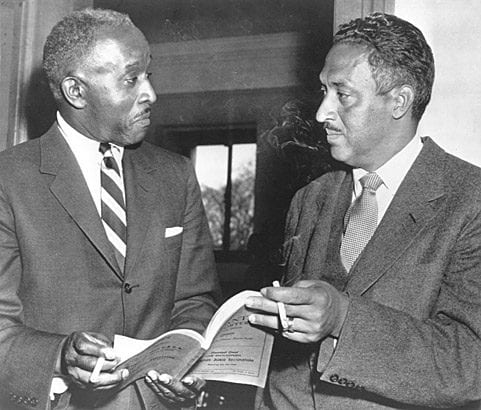ExtraOrdinary Districts Special Edition: The Milford 11
In the summer after the Supreme Court’s 1954 decision in Brown v. Board of Education, Delaware’s first African American attorney, Louis L. Redding and local minister Reverend Fisher met with…

In the summer after the Supreme Court’s 1954 decision in Brown v. Board of Education, Delaware’s first African American attorney, Louis L. Redding and local minister Reverend Fisher met with a group of families in Milford, Delaware.
“They prepared us for what we felt was the opportunity to go to an all-white school,” said Orlando J. Camp, one of 11 African American students who enrolled in Milford High School that fall, in an interview he did in 2012. “We were coached, we were counseled. We were very excited about the opportunity.”
For about a week, things went relatively smoothly.
But a local businessman called in a small-time crook named Bryant Bowles who called himself the president of the National Association for the Advancement of White People. In a series of meetings and rallies Bowles urged local White families to boycott the schools. Over the next few weeks, White parents gathered on the schoolhouse steps every morning. They hurled insults at the 11 African American students, and they threatened White parents who continued to send their children to school. Fewer and fewer White children attended every day.
The state’s attorney general sent state troopers, but the state school board criticized the local school board for integrating before getting permission from the state and before the U.S. Supreme Court issued an implementation ruling. The governor refused to send the National Guard.
Feeling undermined, the local school board members resigned, the state school board dis-enrolled the Milford 11, and that was the end of integration efforts, not only in Milford but in all of lower Delaware, for many years. For years courts and politicians warned of the “disorder” that might occur if desegregation were attempted, sometimes specifically naming Milford.
In a special edition of ExtraOrdinary Districts podcast, Education Trust’s writer-in-residence Karin Chenoweth explores the story of the Milford 11, using archival audio from participants and an interview with Northwestern University historian Brett V. Gadsden, who helps put the events of 1954 into perspective.
Don’t miss Season Two coming later this year. Subscribe wherever you listen to podcasts!